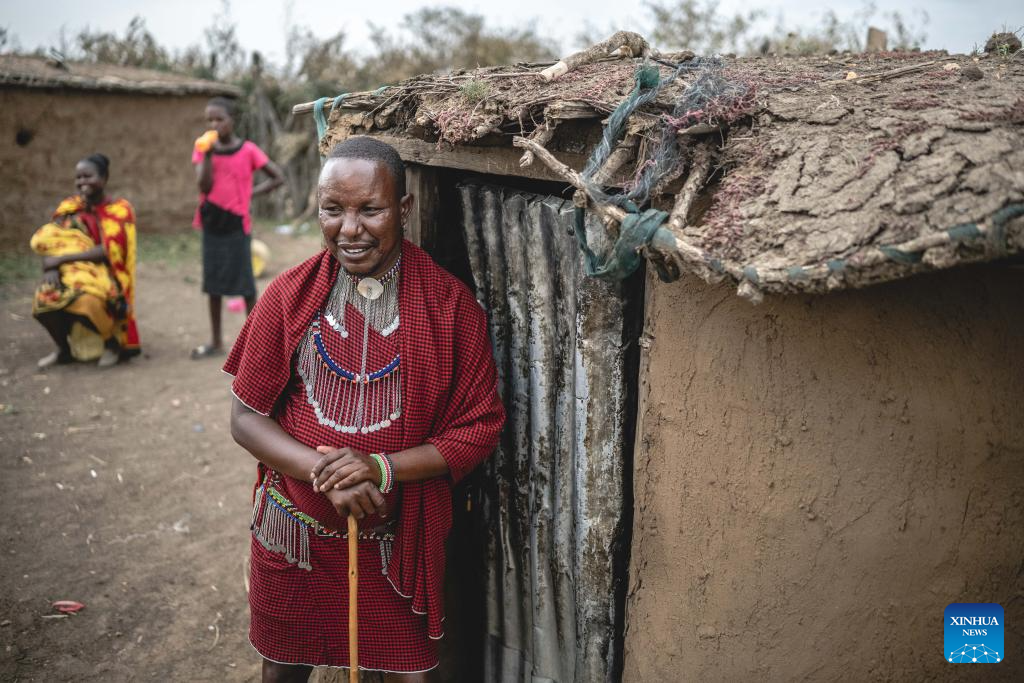
A Maasai villager stands in front of his home in a village in the Masai Mara National Reserve in Narok, Kenya, on Aug. 21, 2024. Maasai, one of the major tribes in Kenya, is mainly scattered in the south and southwest parts bordering Tanzania. The tribe is still living in nomadic way.
Their settlement covers the world-famous tourist destinations of Masai Mara National Reserve and Serengeti National Park. With the development of local tourism industry, the Maasai people have opened their villages to embrace the tourists, as a way of increasing their income while maintaining their traditional lifestyle. (Xinhua/Wang Guansen)
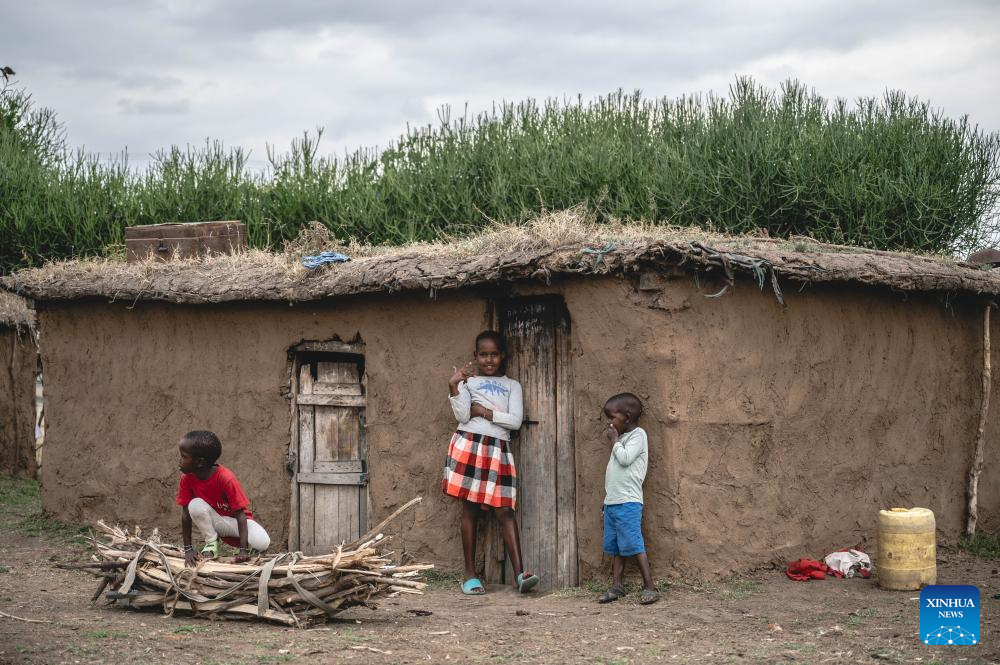
Maasai children have fun in a village in the Masai Mara National Reserve in Narok, Kenya, on Aug. 21, 2024. Maasai, one of the major tribes in Kenya, is mainly scattered in the south and southwest parts bordering Tanzania. The tribe is still living in nomadic way.
Their settlement covers the world-famous tourist destinations of Masai Mara National Reserve and Serengeti National Park. With the development of local tourism industry, the Maasai people have opened their villages to embrace the tourists, as a way of increasing their income while maintaining their traditional lifestyle. (Xinhua/Wang Guansen)
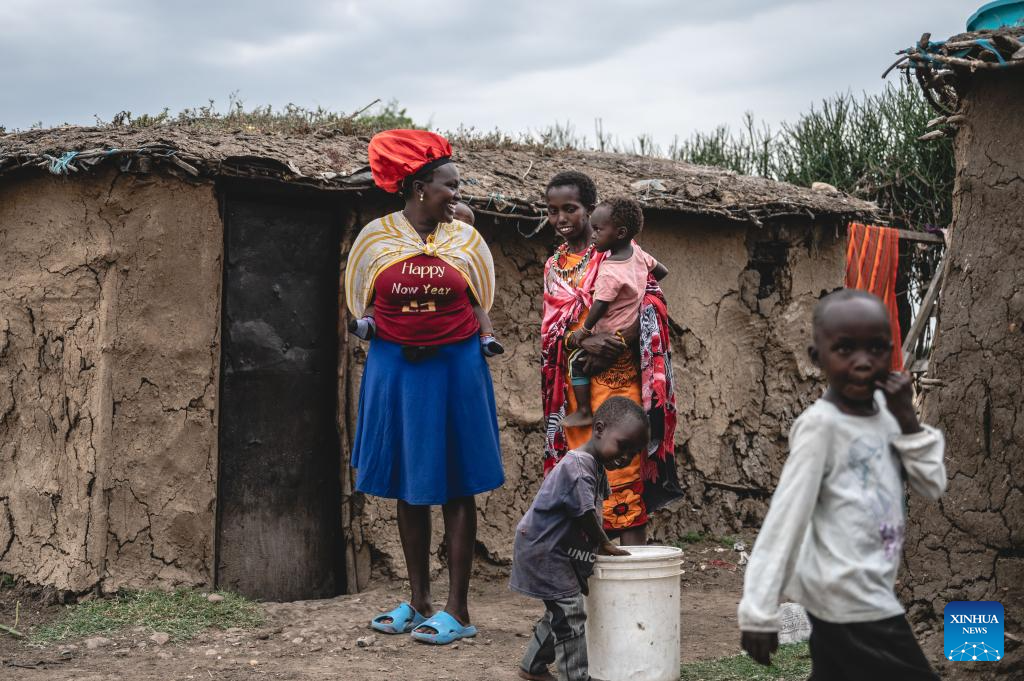
Maasai villagers communicate in a village in the Masai Mara National Reserve in Narok, Kenya, Aug. 21, 2024. Maasai, one of the major tribes in Kenya, is mainly scattered in the south and southwest parts bordering Tanzania. The tribe is still living in nomadic way.
Their settlement covers the world-famous tourist destinations of Masai Mara National Reserve and Serengeti National Park. With the development of local tourism industry, the Maasai people have opened their villages to embrace the tourists, as a way of increasing their income while maintaining their traditional lifestyle. (Xinhua/Wang Guansen)
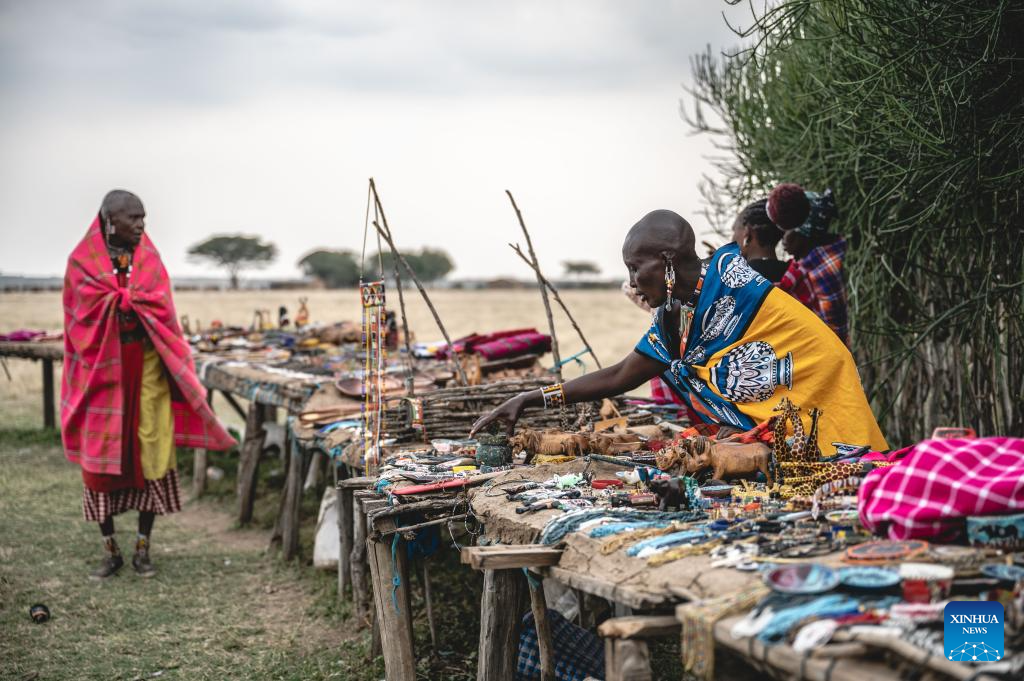
Maasai villagers sell souvenirs in the Masai Mara National Reserve in Narok, Kenya, on Aug. 21, 2024. Maasai, one of the major tribes in Kenya, is mainly scattered in the south and southwest parts bordering Tanzania. The tribe is still living in nomadic way.
Their settlement covers the world-famous tourist destinations of Masai Mara National Reserve and Serengeti National Park. With the development of local tourism industry, the Maasai people have opened their villages to embrace the tourists, as a way of increasing their income while maintaining their traditional lifestyle. (Xinhua/Wang Guansen)
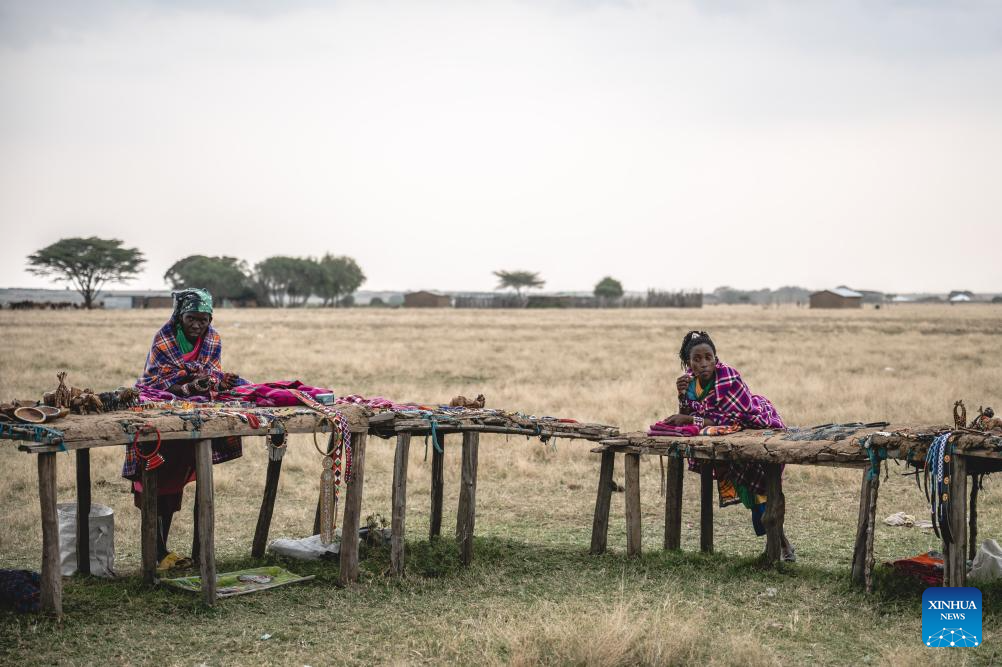
Maasai villagers sell souvenirs in the Masai Mara National Reserve in Narok, Kenya, on Aug. 21, 2024. Maasai, one of the major tribes in Kenya, is mainly scattered in the south and southwest parts bordering Tanzania. The tribe is still living in nomadic way.
Their settlement covers the world-famous tourist destinations of Masai Mara National Reserve and Serengeti National Park. With the development of local tourism industry, the Maasai people have opened their villages to embrace the tourists, as a way of increasing their income while maintaining their traditional lifestyle. (Xinhua/Wang Guansen)
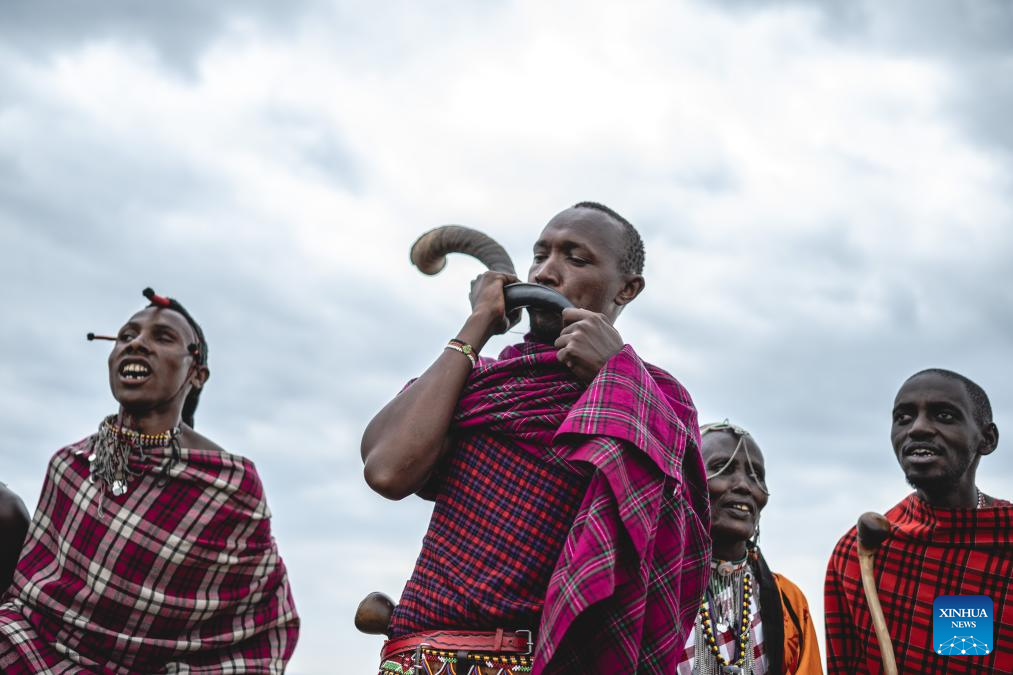
Maasai villagers play traditional musical instruments in a village in the Masai Mara National Reserve in Narok, Kenya, on Aug. 21, 2024. Maasai, one of the major tribes in Kenya, is mainly scattered in the south and southwest parts bordering Tanzania. The tribe is still living in nomadic way.
Their settlement covers the world-famous tourist destinations of Masai Mara National Reserve and Serengeti National Park. With the development of local tourism industry, the Maasai people have opened their villages to embrace the tourists, as a way of increasing their income while maintaining their traditional lifestyle. (Xinhua/Wang Guansen)
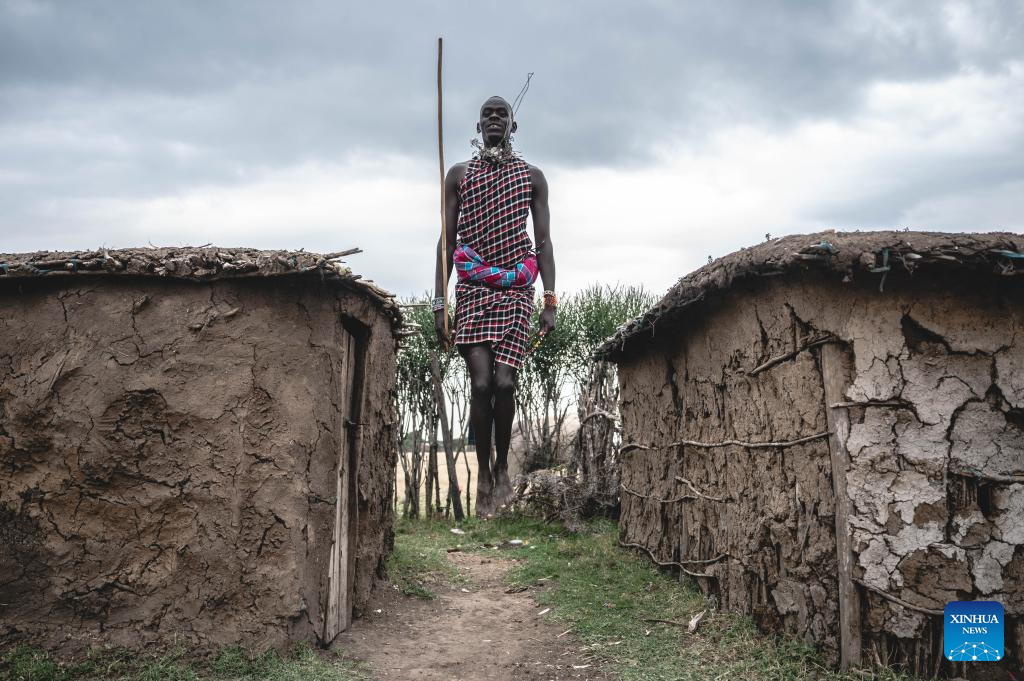
A Maasai villager performs the traditional dance in a village in the Masai Mara National Reserve in Narok, Kenya, on Aug. 21, 2024. Maasai, one of the major tribes in Kenya, is mainly scattered in the south and southwest parts bordering Tanzania. The tribe is still living in nomadic way.
Their settlement covers the world-famous tourist destinations of Masai Mara National Reserve and Serengeti National Park. With the development of local tourism industry, the Maasai people have opened their villages to embrace the tourists, as a way of increasing their income while maintaining their traditional lifestyle. (Xinhua/Wang Guansen)
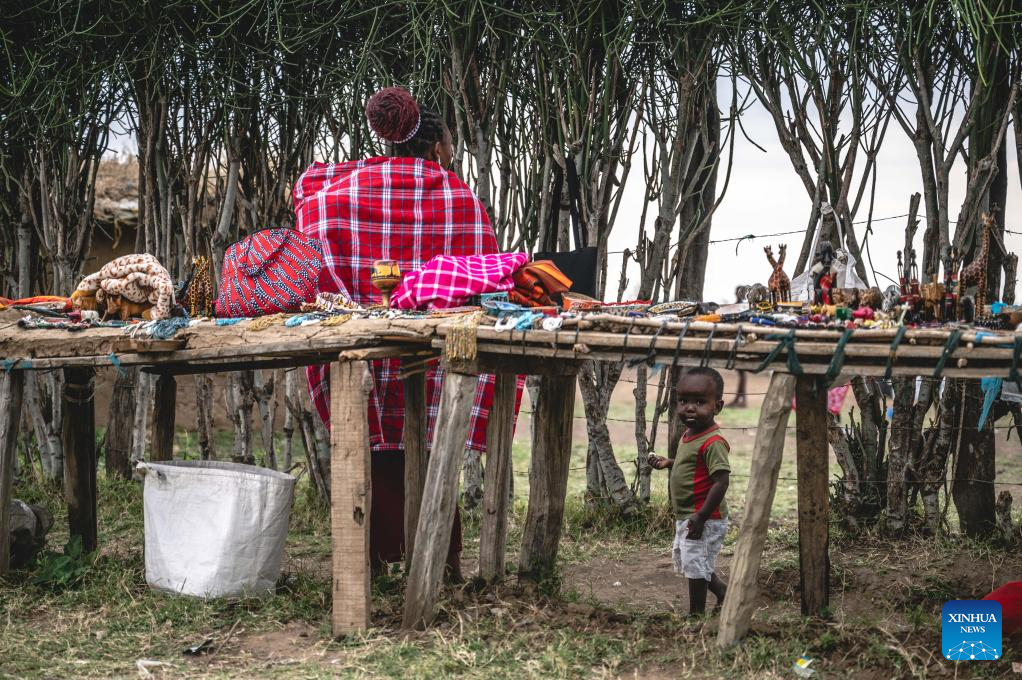
A Maasai villager sells souvenirs in the Masai Mara National Reserve in Narok, Kenya, on Aug. 21, 2024. Maasai, one of the major tribes in Kenya, is mainly scattered in the south and southwest parts bordering Tanzania. The tribe is still living in nomadic way.
Their settlement covers the world-famous tourist destinations of Masai Mara National Reserve and Serengeti National Park. With the development of local tourism industry, the Maasai people have opened their villages to embrace the tourists, as a way of increasing their income while maintaining their traditional lifestyle. (Xinhua/Wang Guansen)
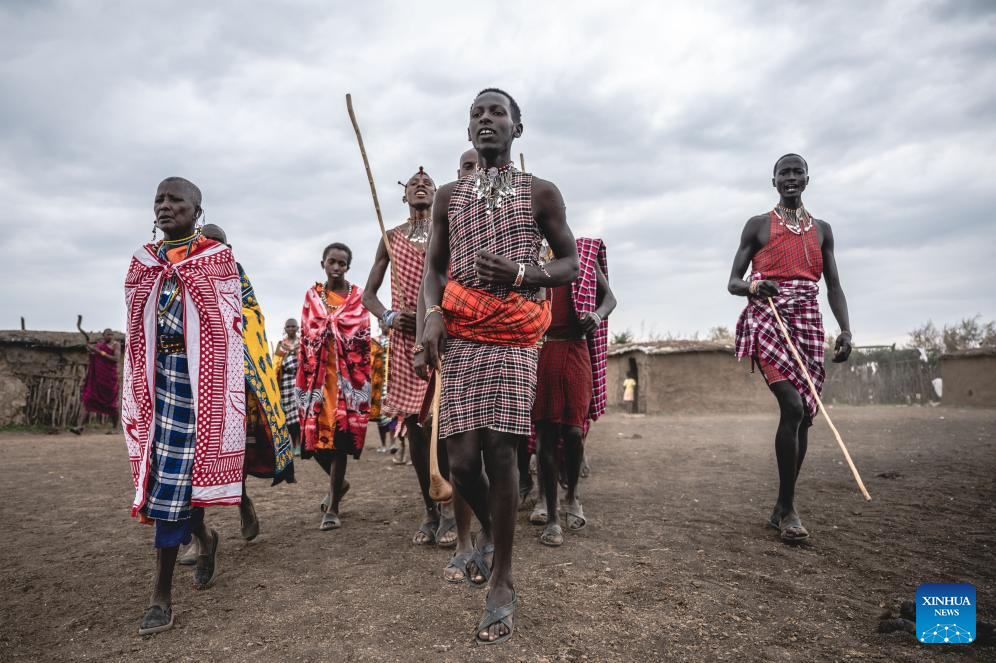
Maasai villagers perform the traditional dance in a village in the Masai Mara National Reserve in Narok, Kenya, on Aug. 21, 2024. Maasai, one of the major tribes in Kenya, is mainly scattered in the south and southwest parts bordering Tanzania. The tribe is still living in nomadic way.
Their settlement covers the world-famous tourist destinations of Masai Mara National Reserve and Serengeti National Park. With the development of local tourism industry, the Maasai people have opened their villages to embrace the tourists, as a way of increasing their income while maintaining their traditional lifestyle. (Xinhua/Wang Guansen)
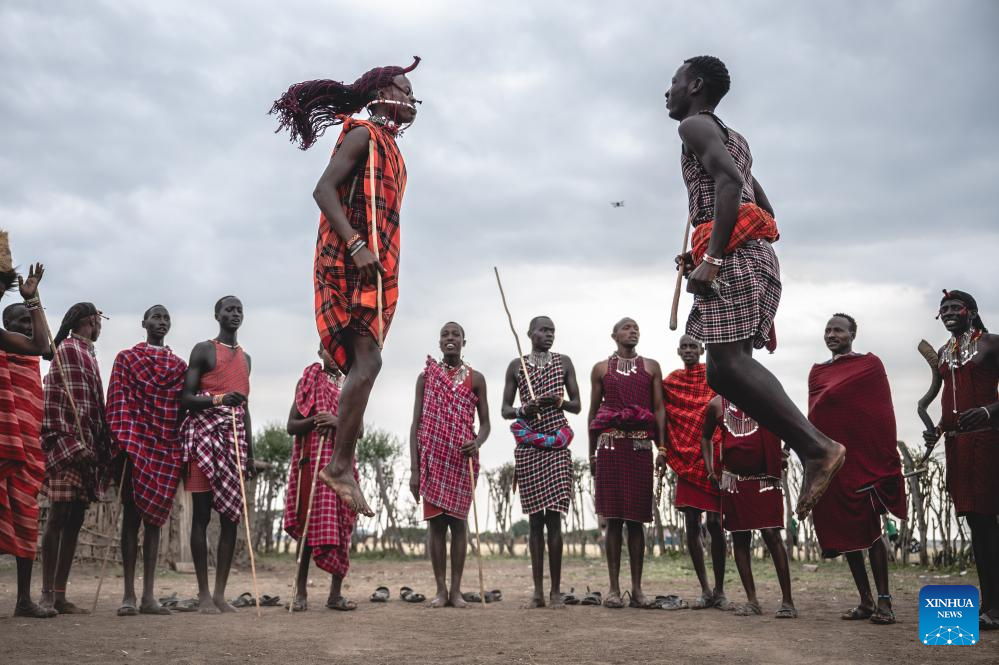
Maasai villagers perform the traditional dance in a village in the Masai Mara National Reserve in Narok, Kenya, on Aug. 21, 2024. Maasai, one of the major tribes in Kenya, is mainly scattered in the south and southwest parts bordering Tanzania. The tribe is still living in nomadic way.
Their settlement covers the world-famous tourist destinations of Masai Mara National Reserve and Serengeti National Park. With the development of local tourism industry, the Maasai people have opened their villages to embrace the tourists, as a way of increasing their income while maintaining their traditional lifestyle. (Xinhua/Wang Guansen)
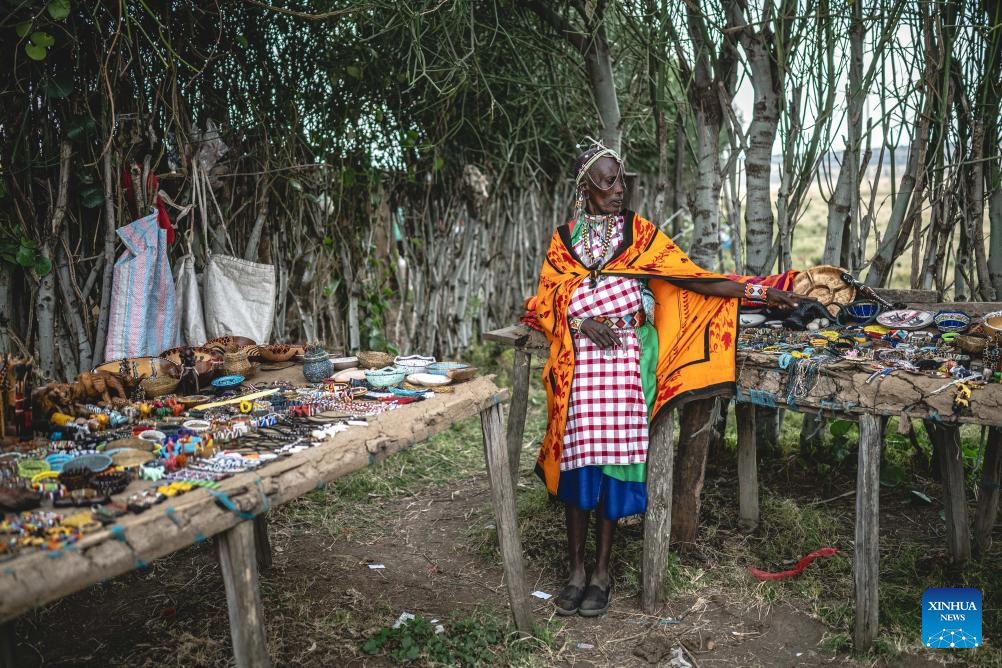
A Maasai villager sells souvenirs in the Masai Mara National Reserve in Narok, Kenya, on Aug. 21, 2024. Maasai, one of the major tribes in Kenya, is mainly scattered in the south and southwest parts bordering Tanzania. The tribe is still living in nomadic way.
Their settlement covers the world-famous tourist destinations of Masai Mara National Reserve and Serengeti National Park. With the development of local tourism industry, the Maasai people have opened their villages to embrace the tourists, as a way of increasing their income while maintaining their traditional lifestyle. (Xinhua/Wang Guansen)
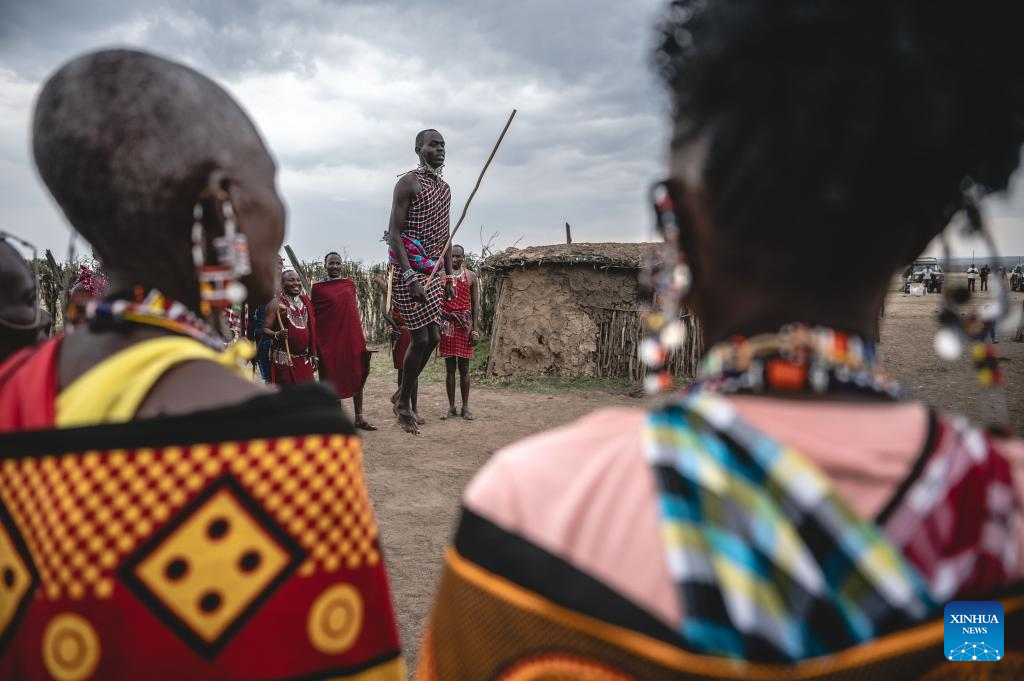
Maasai villagers perform the traditional dance in a village in the Masai Mara National Reserve in Narok, Kenya, on Aug. 21, 2024. Maasai, one of the major tribes in Kenya, is mainly scattered in the south and southwest parts bordering Tanzania. The tribe is still living in nomadic way.
Their settlement covers the world-famous tourist destinations of Masai Mara National Reserve and Serengeti National Park. With the development of local tourism industry, the Maasai people have opened their villages to embrace the tourists, as a way of increasing their income while maintaining their traditional lifestyle. (Xinhua/Wang Guansen)
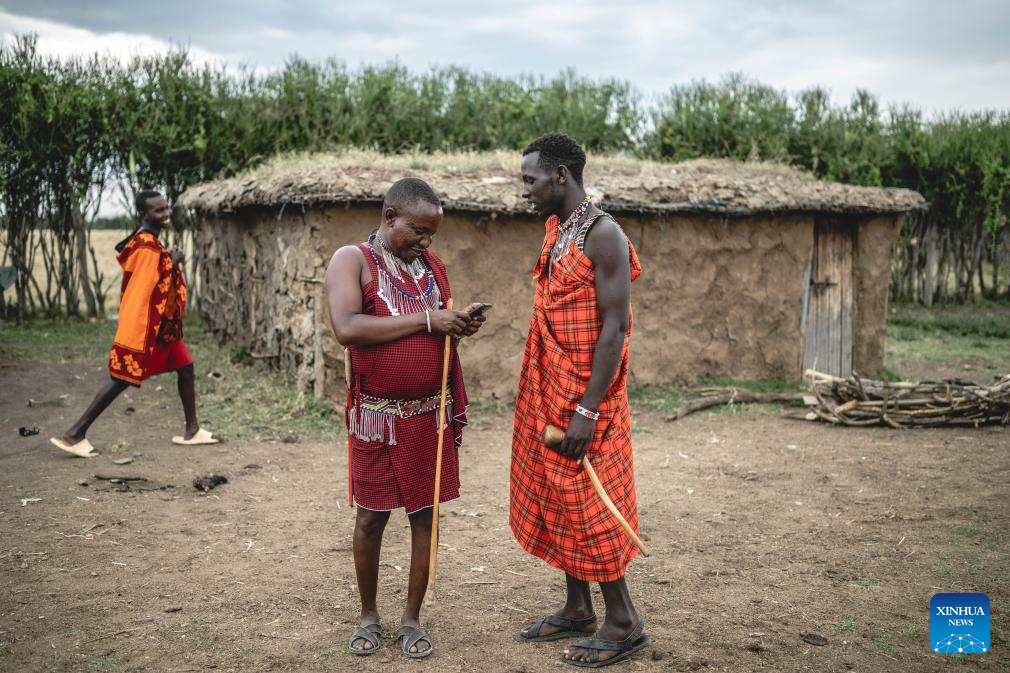
Maasai villagers communicate in a village in the Masai Mara National Reserve in Narok, Kenya, on Aug. 21, 2024. Maasai, one of the major tribes in Kenya, is mainly scattered in the south and southwest parts bordering Tanzania. The tribe is still living in nomadic way.
Their settlement covers the world-famous tourist destinations of Masai Mara National Reserve and Serengeti National Park. With the development of local tourism industry, the Maasai people have opened their villages to embrace the tourists, as a way of increasing their income while maintaining their traditional lifestyle. (Xinhua/Wang Guansen)



